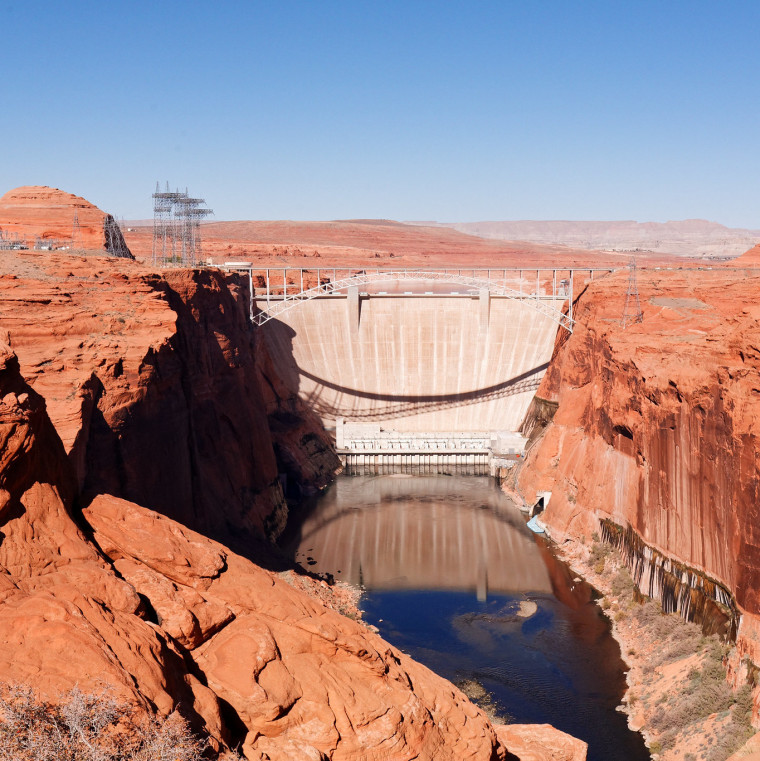Glen Canyon Litigation Moves on to the Ninth Circuit
Earthrise’s legal challenge to the Long Term Management Plan for the Glen Canyon Dam is now before the Ninth Circuit Court of Appeals.
Open gallery

Photo courtesy of Brent Myers Attribution (CC BY 2.0)
Earthrise clinical professors Jamie Saul and Tom Buchele filed this National Environmental Policy Act (NEPA) case in the District of Arizona in 2019, alleging that the Bureau of Reclamation’s Environmental Impact Statement (EIS) failed to account for the most likely and severe consequences of climate change. Our clients are Save the Colorado River, Living Rivers, and the Center for Biological Diversity. In 2016 when the EIS and management plan were finalized multiple, published scientific articles projected significant decreases in river flows for the Colorado River because of the “hot drought” caused by climate change. Although our clients pointed out this science in their comments on the EIS, the final document continued to rely only on river flow projections based on historical data, which significantly understated the likely, much harsher impacts of the higher temperatures and increased evaporation caused by climate change.
Unfortunately, in late December the district court ruled for the federal agency defendants on the parties’ cross-motions for summary judgment. We appealed in February, and we are currently working on our opening brief, which is due in June. The harsh realities of climate change and the Bureau of Reclamation’s recent emergency actions have underscored just how right our clients were in 2016 and 2019 when they urged the agency to redo its NEPA analysis in light of the most recent, scientific projections regarding climate change impacts on the Colorado River and Lake Powell. In 2022 the reservoir behind the Glen Canyon Dam was only about 25% full, dangerously close to “dead pool,” and the Bureau issued multiple emergency orders decreasing water releases and beginning analysis regarding measures to address the entirely predictable water shortages. We have always assumed that this case would have to be resolved by the Ninth Circuit, and now that is where we continue this important fight.
Earthrise Law Center is located in Wood Hall on the Law Campus.
MSC: 51
email earthrise@lclark.edu
voice (503) 768-6736
fax (503) 768-6642
Allison LaPlante
Earthrise Law Center
Lewis & Clark Law School
10101 S. Terwilliger Boulevard MSC 51
Portland OR 97219

